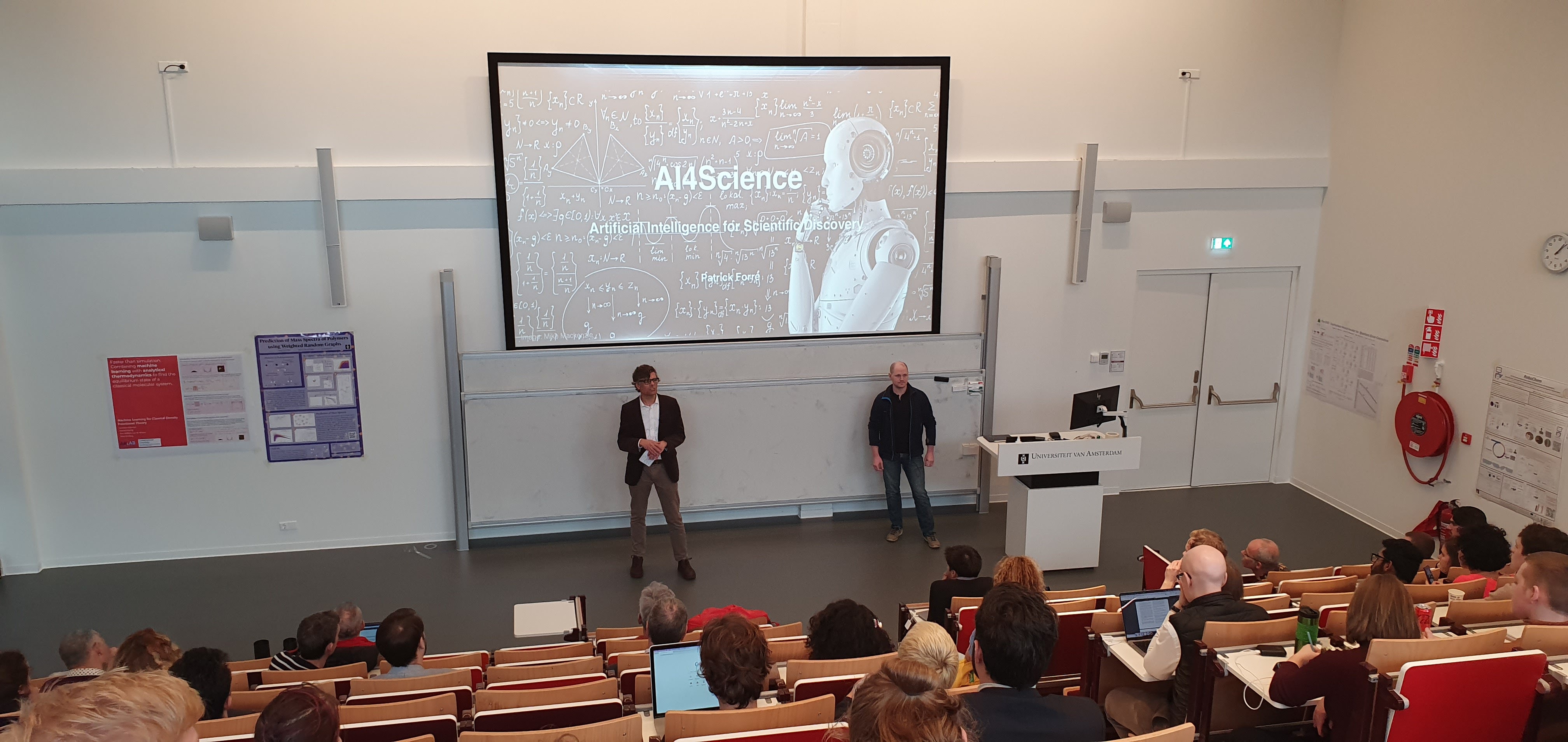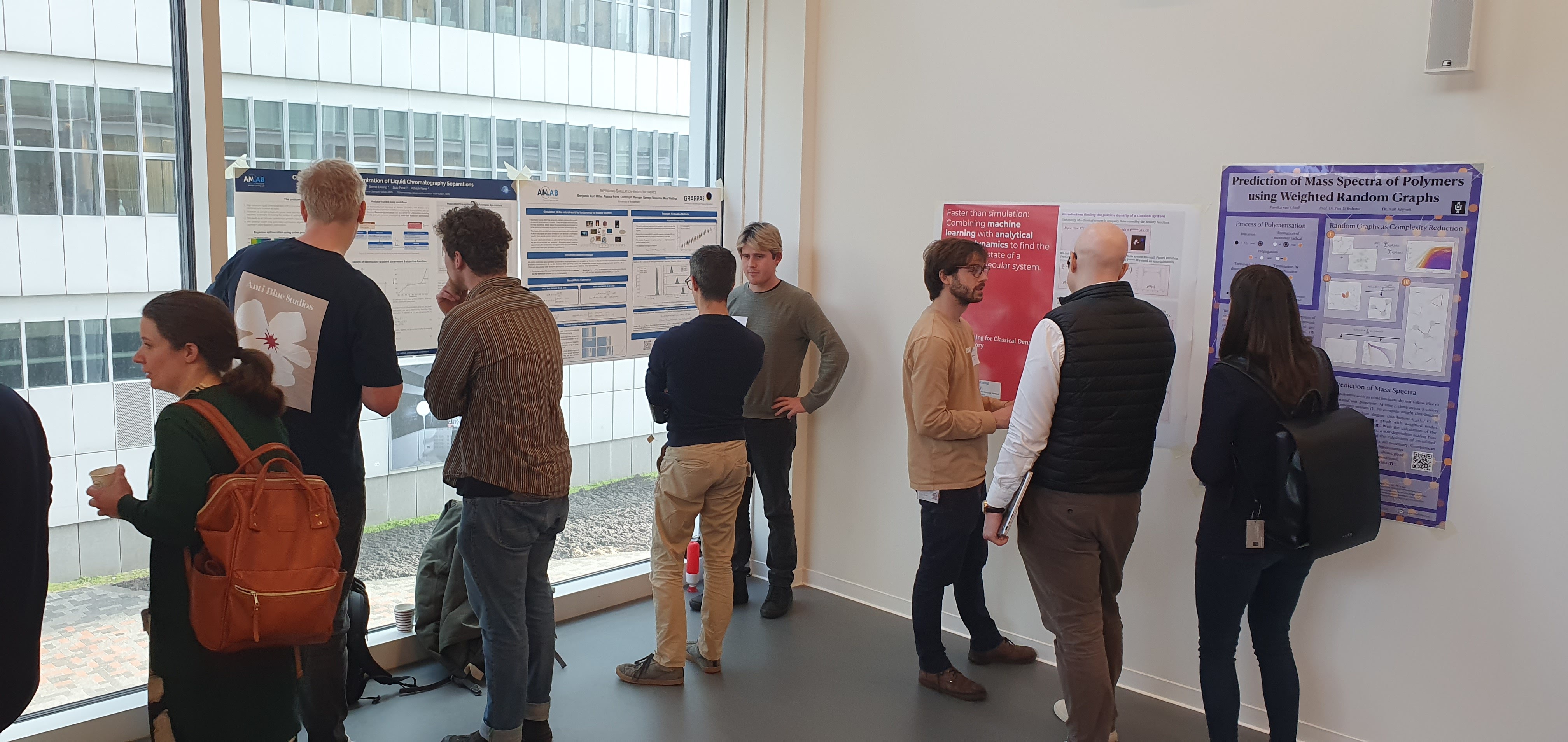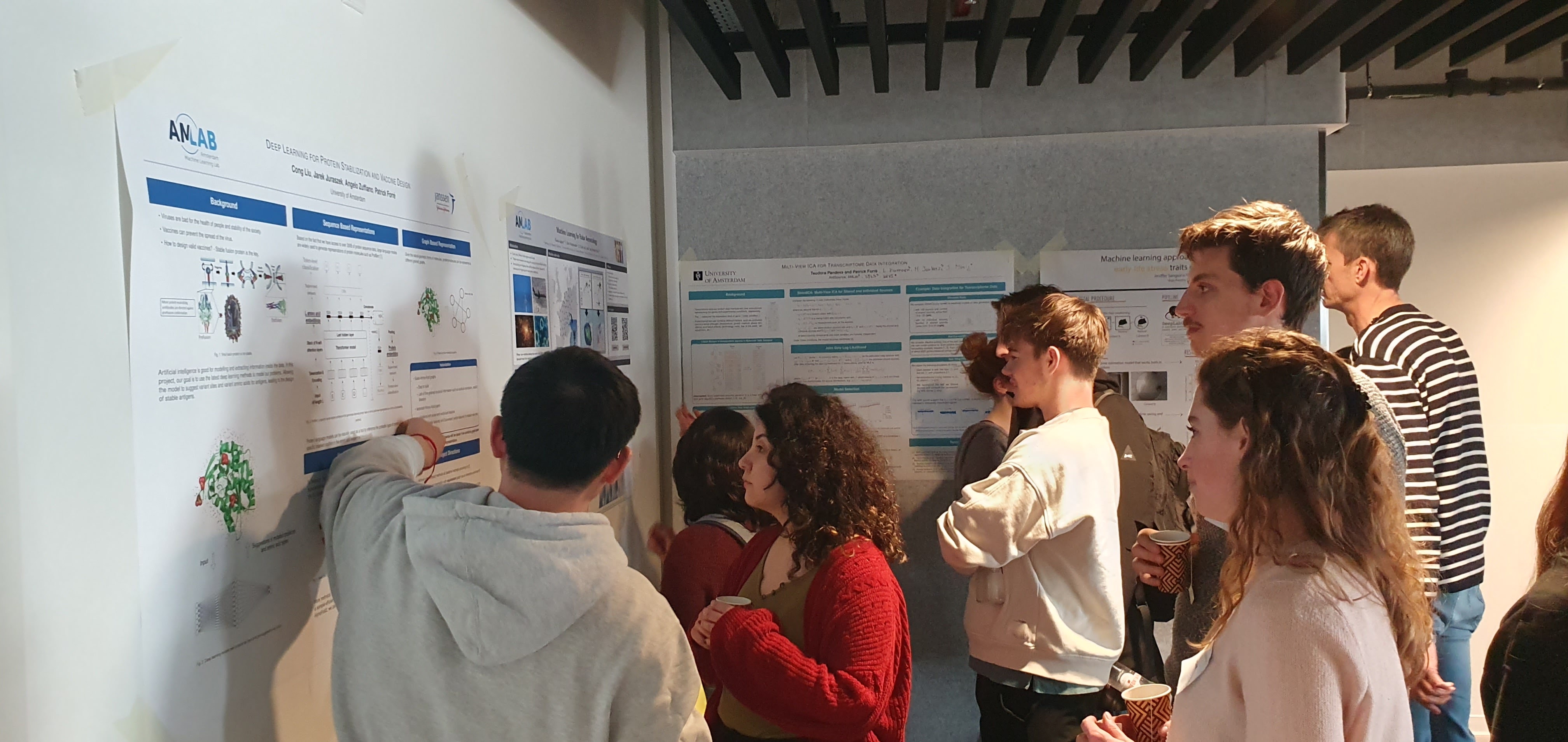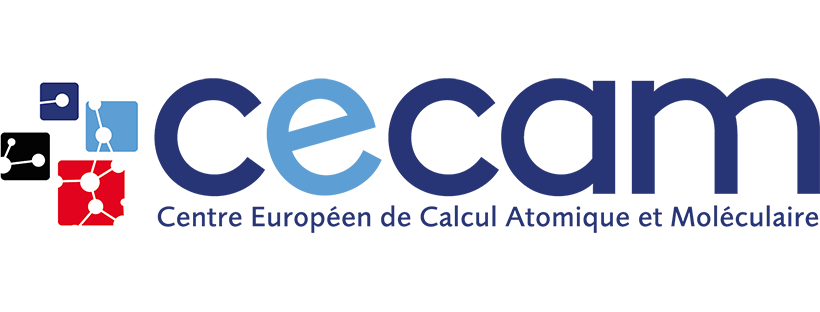Artificial intelligence and machine learning are rapidly finding their way into the natural sciences, where they are applied for the analysis of research data, finding patterns and making predictions. At the same time, research topics and methodologies initiate the study and development of new machine learning algorithms. The co-development of both fields is self-catalyzed by the shared interest in building accurate models and distribution functions of the highly complex phenomena of nature.
The aim of this AI4Science Symposium was three-fold: (1) show-case recent progress of artificial intelligence for scientific discovery within the different FNWI research institutes and outside, (2) bring AI experts and scientists together to exchange ideas, and (3) explore possibilities for new collaborations, research projects, and funding opportunities.
Six scientists connected to the different FNWI institutes gave lectures on how artificial intelligence is advancing their scientific research. During the poster sessions, young and senior researchers presented their results and discuss opportunities for AI models or scientific research. The symposium concluded with drinks and snacks.
The symposium was open to everyone with an interest in artificial intelligence for scientific discovery.
Impression
 Opening of the AI4Science Symposium by our directors Patrick Forré (right) and Bernd Ensing (left)
Opening of the AI4Science Symposium by our directors Patrick Forré (right) and Bernd Ensing (left)
 Poster presentations
Poster presentations
 More poster presentations
More poster presentations
Program:
| Time | Speaker |
|---|---|
| 13.00 - 13.15 | Opening |
| 13.15 - 13.40 | Patrick Forré (IvI) Past, Present, and Future of the AI4Science Lab |
| 13.45 - 14.10 | Alberto Pérez de Alba Ortíz (CSM) Harnessing ML to Sample, Analyze & Engineer Modes in Molecular & Colloidal Systems |
| 14.15 - 13.40 | Jean-Michel Désert (API) Numerical Tools to Dicepher Exoplanet Atmospheres |
| 14.45 - 15.45 | Posters + coffee break |
| 15.45 - 16.10 | Huub Hoefsloot (SILS) How to get Biological Knowledge in a Deep Learner |
| 16.15 - 16.40 | Daniela Huppenkothen (SRON) Inferring the Properties of Black Holes and Neutron Stars with Machine Learning |
| 16.45 - 17.10 | Saer Samanipour (HIMS) & Antonia Praetorius (IBED) From molecular structure to chemical risk assessment. An AI toolbox towards safe(r) chemicals |
| 17.15 - 17.30 | Conclusions |
| 17.30 - 19.00 | Posters + drinks & snacks |
Organisers
- Patrick Forré
- Bernd Ensing
Sponsors
The AI4Science Lab thanks CECAM, and in particular the CECAM-NL node, for financial support of the AI4Science Symposium.
